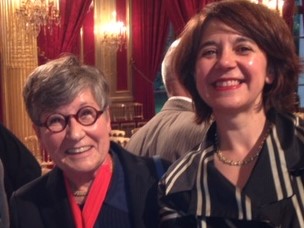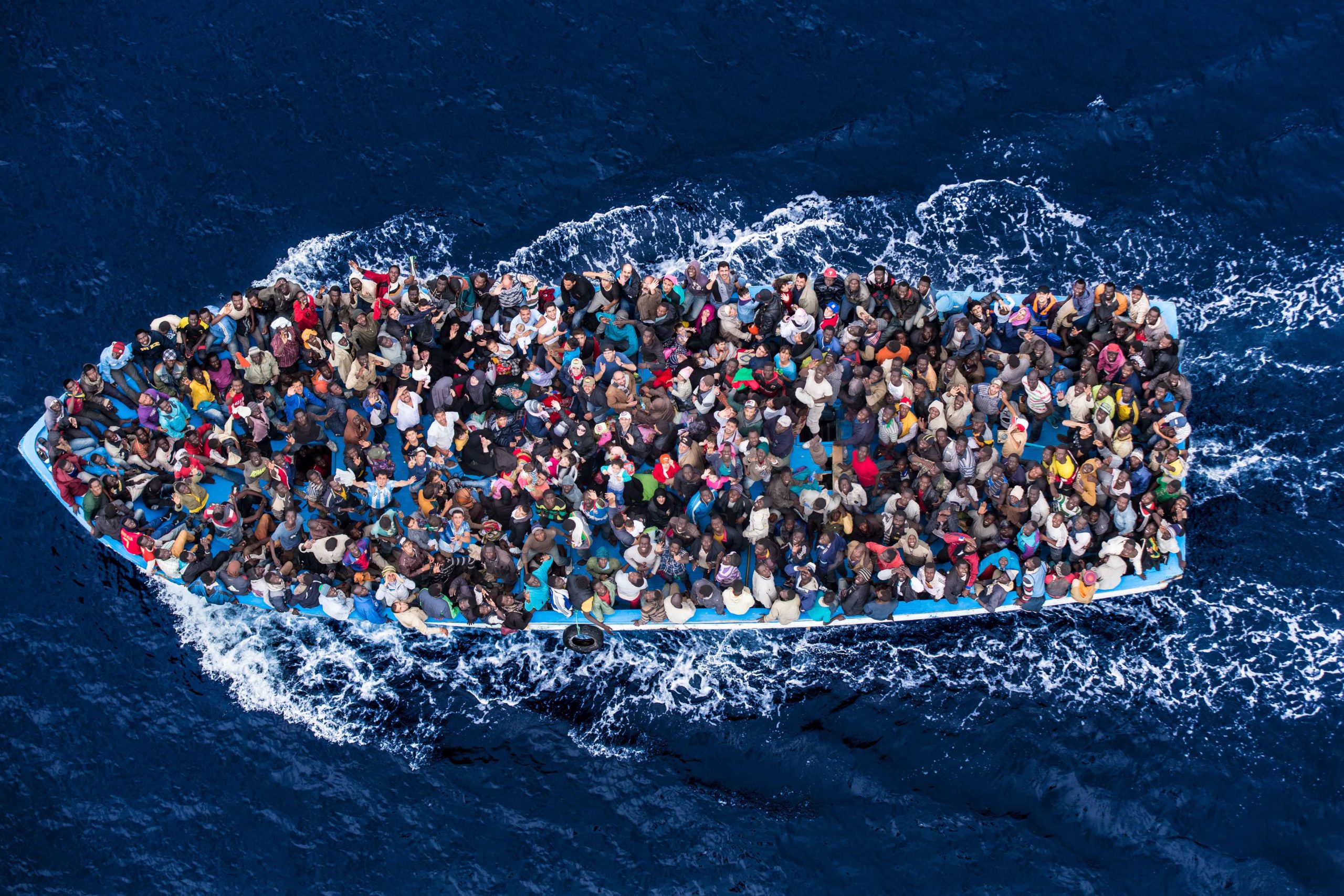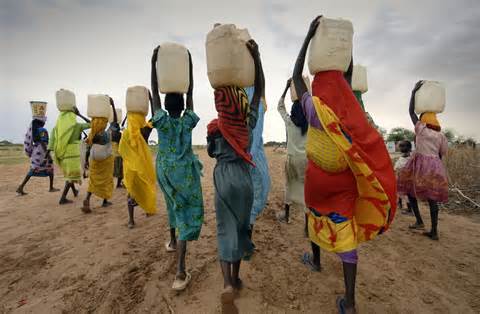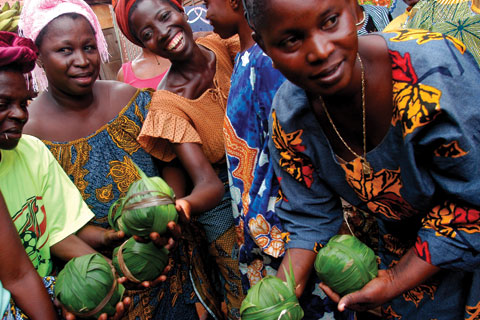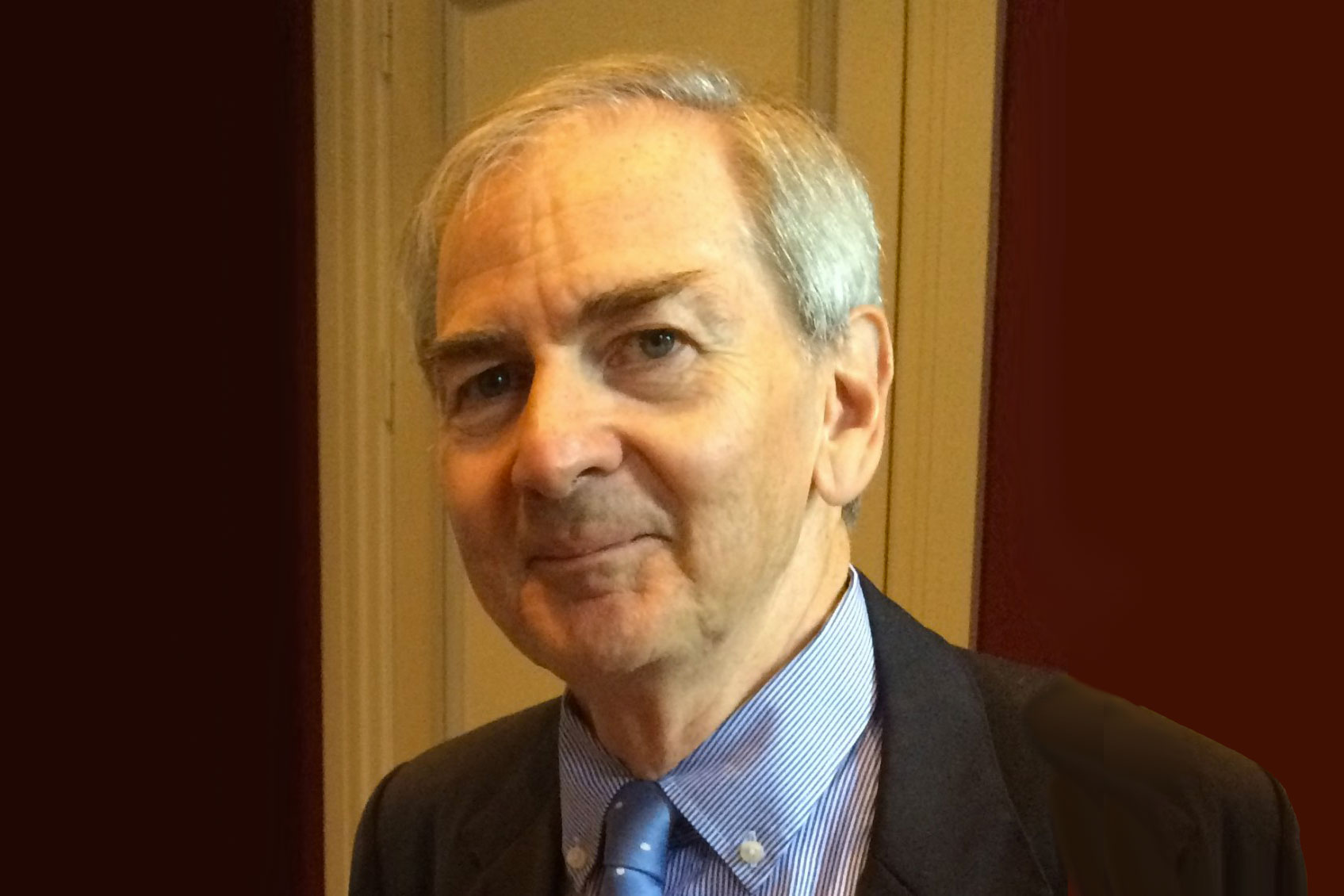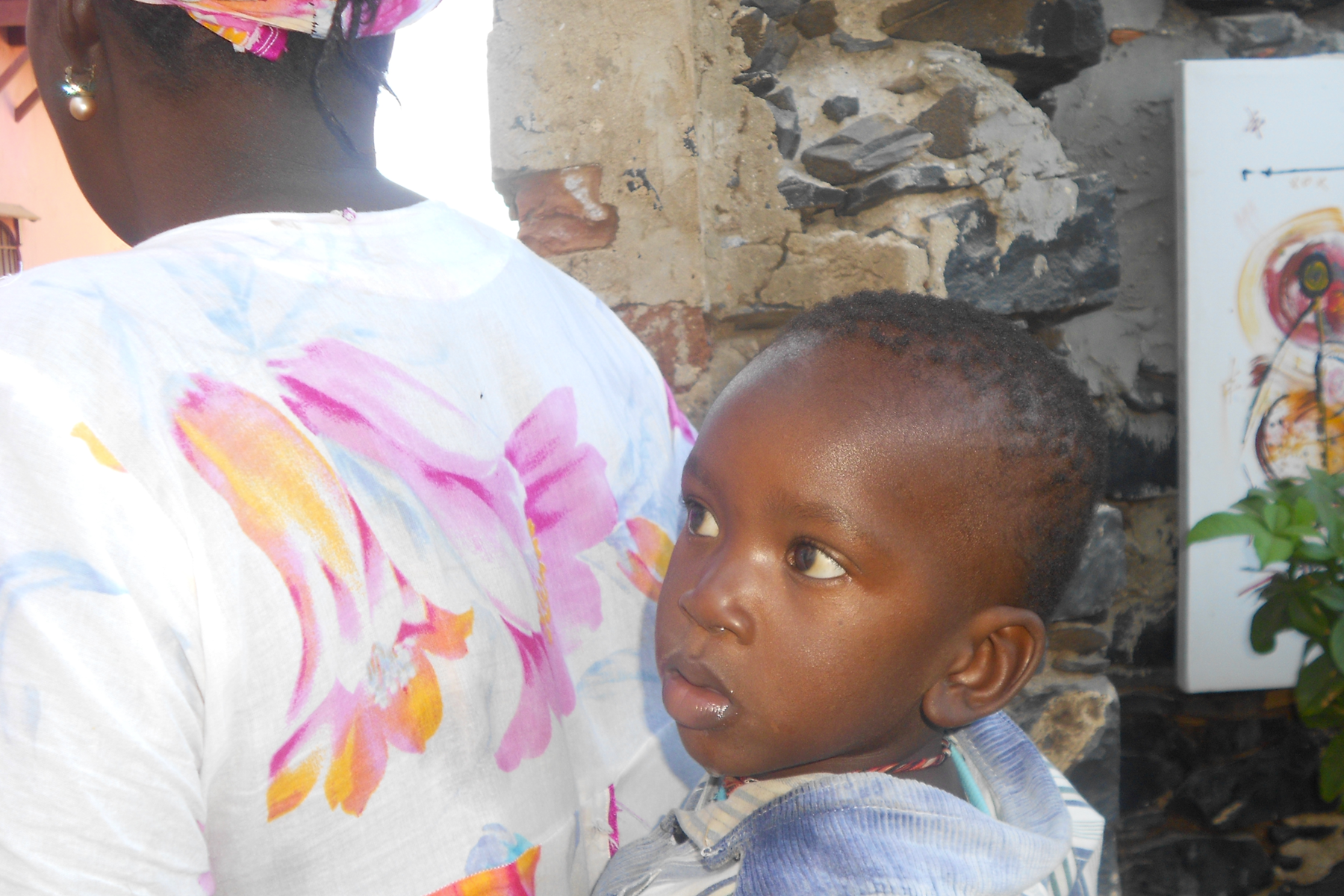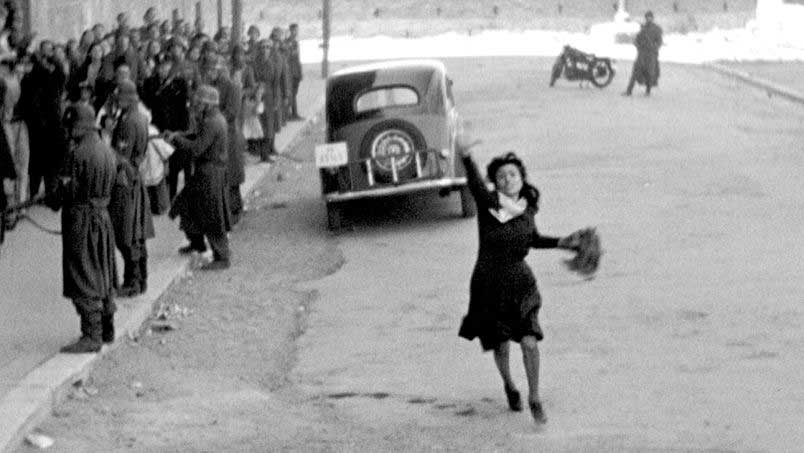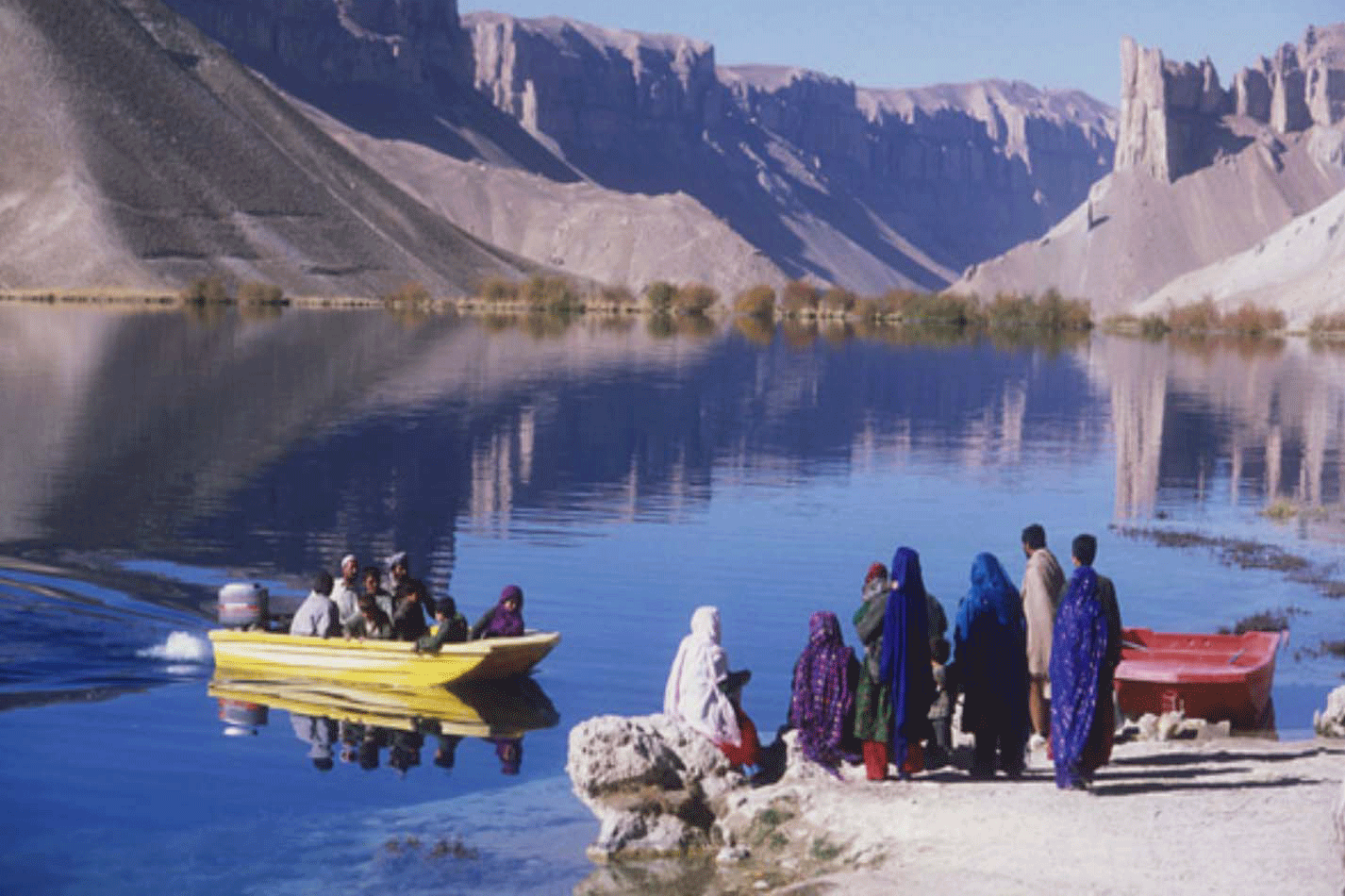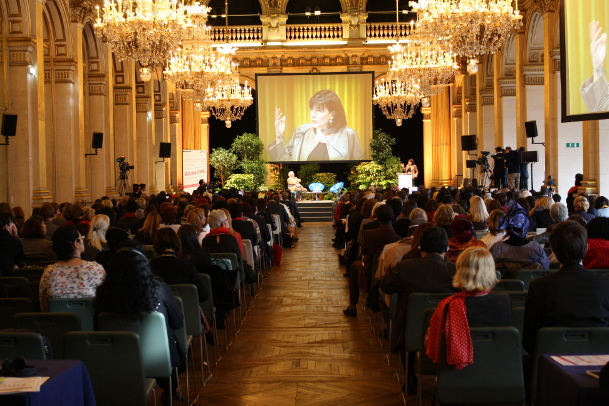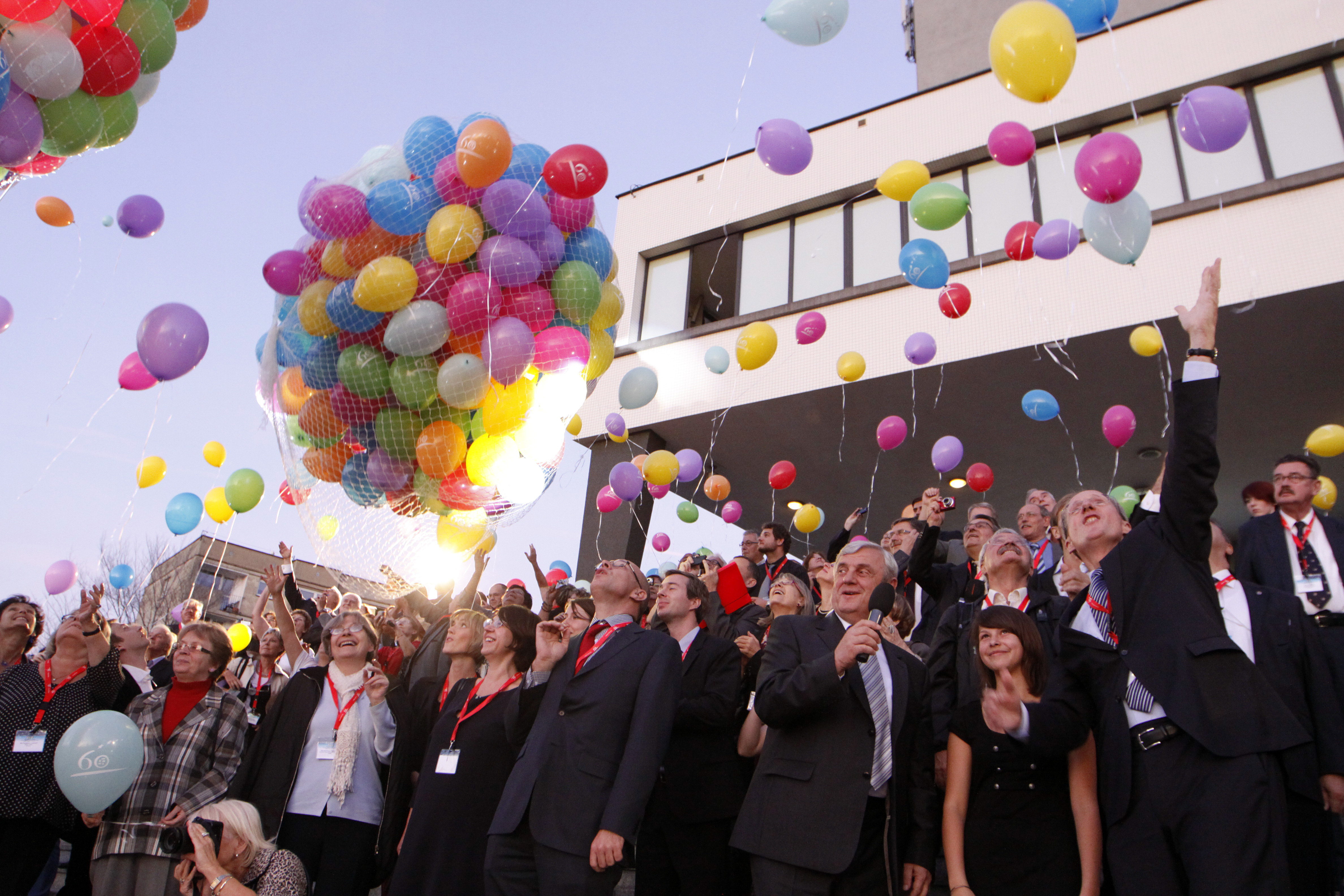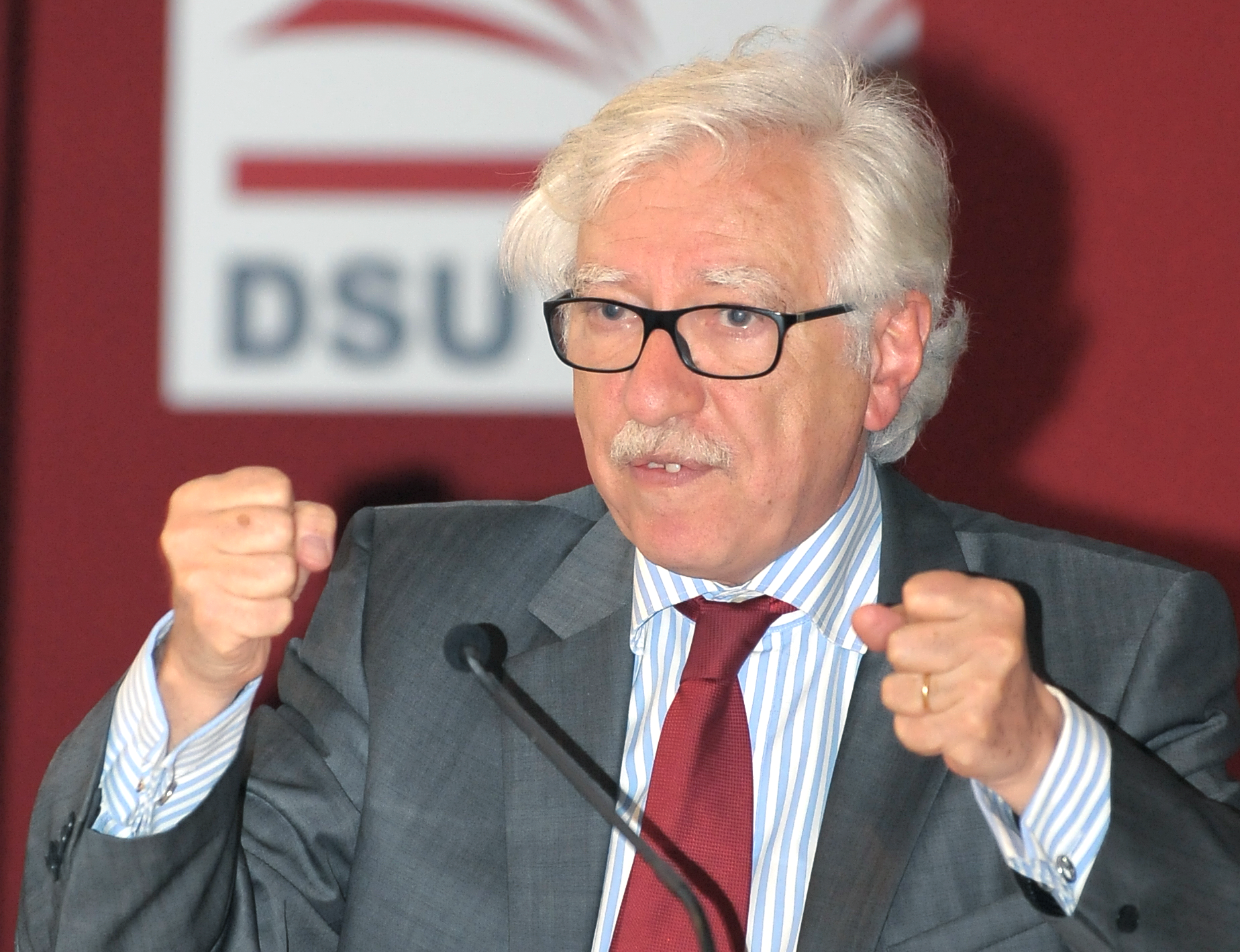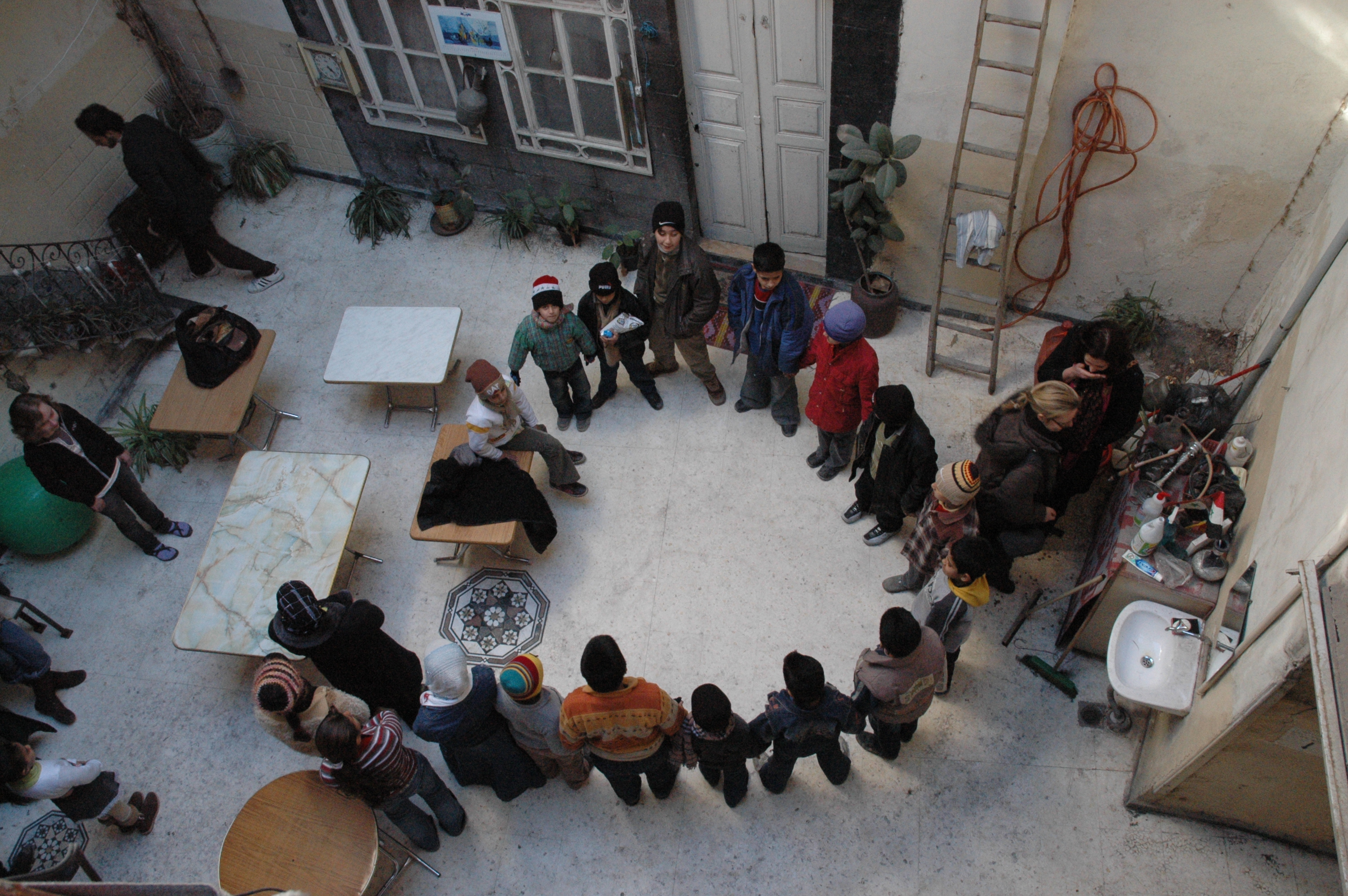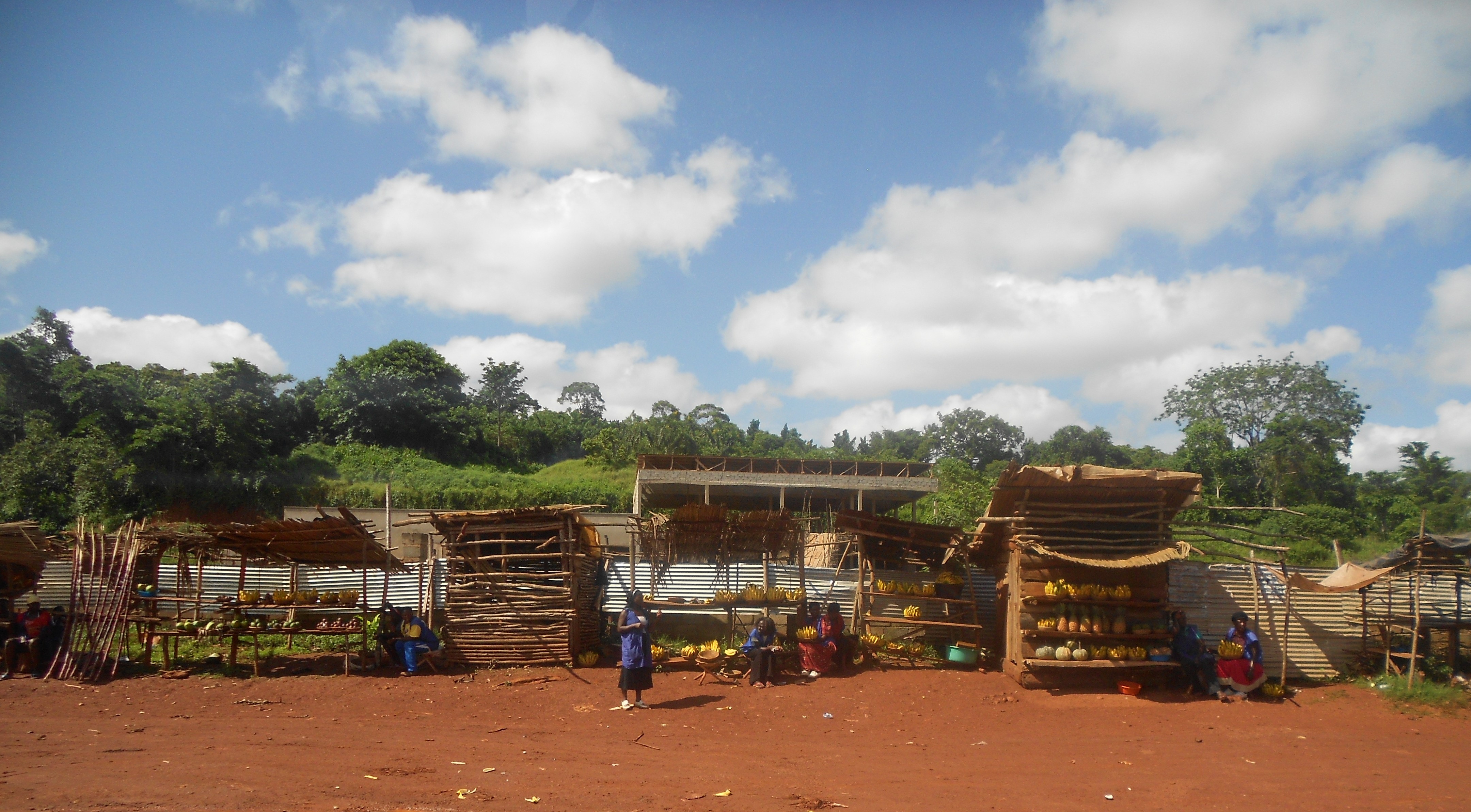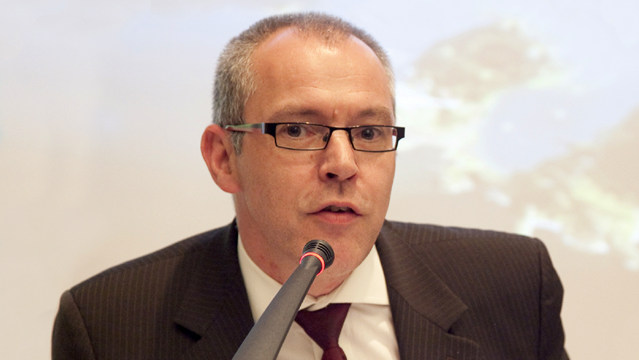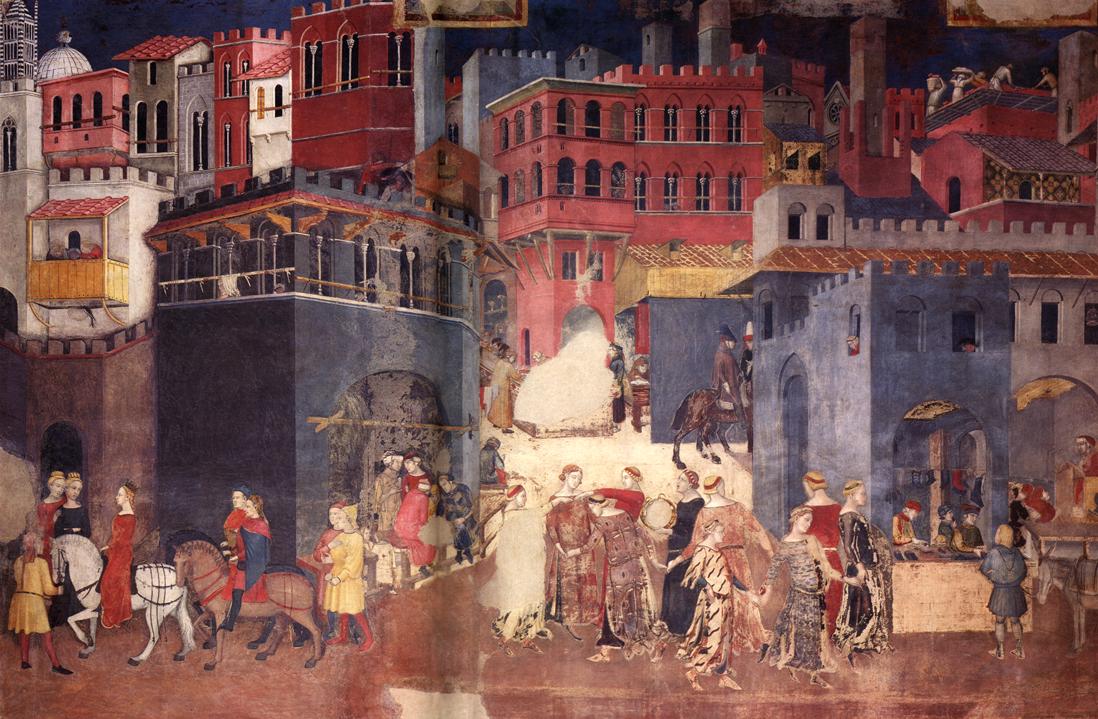African Cities Without Street Children

It is this project of the United Cities and Local Governments of Africa (UCLGA) and its network of Elected Women, REFELA, on which I am currently working.
I would like to thank the Secretary General of UCLGA (1), Jean Pierre Elong Mbassi, who considers this project to be of great importance, for having invited me to work with UCLGA and REFELA as an expert in this area.
The United Nations believes that there are 150 million children who live on the streets in the world today. Africa accounts for 50 million of them. There are multiple causes: poverty and the inability of families to feed them, parental separation and the breakdown of family ties, the consequences of the relocation of populations as a result of urbanisation, wars, conflicts and natural disasters.
Experts make a distinction between two categories of children living on the streets: children of the streets, for whom the streets are their home, during the night as well as during the day, because they have no family and nowhere to return to in the evening, and children on the streets, whose lives revolve around the streets during the day, where they have different activities or jobs, but who still have familial ties and a home waiting for them at the end of the day.
The children of the streets, with the street as their only place of residence, are vulnerable to extreme weather conditions, all sorts of violence, abuse, often sexual in nature, all kinds of trafficking and racketeering, drug use, prostitution, illness due to malnutrition and living in squalor and AIDS. They live in permanent insecurity and, what is more, their presence increases the feeling of insecurity in the cities where they can be found.
This phenomenon was first studied in Latin America, notably in Rio de Janeiro, by the sociologist, Riccardo Lucchini, but it is one that has arisen worldwide, particularly in conjunction with urbanisation. In Africa, the region of the world where urbanisation is developing at the most rapid pace, the number of street children has increased enormously in recent years, at an alarming rate in certain countries, and has become a disquieting issue that can no longer be ignored.
This explains why UCLG Africa and its network of Local Elected Women, REFELA, have decided to make the topic of street children a key issue of the debate amongst African mayors and local officials.
The situation of street children directly affects cities and local authorities all over the African continent, and they must find an answer that addresses both the human and social nature of this tragedy. The fact is that this situation calls into question the social cohesion and the resolution that no one will be left behind expressed by the international community in Agenda 2030. Each of the 17 Sustainable Development Goals (SDG) found in Agenda 2030 concerns children, some directly, some more indirectly, but not a single one can be achieved in a world in which children hold no rights.
The children of the street are beings that have been severed from the world, from their family, their relations and society. Abandoned by family owing to a lack of means, they are kept at a distance, sometimes hunted because they do not fit the characteristic traits sought by a culture and persecuted. They become commodities in black markets and illegal trafficking and can easily find themselves part of networks and situations that go beyond the understanding of a child.
These children never see their rights respected, not by their families, society, nor by the governments of their country. Their living conditions are not allowed under the Convention on the Rights of the Child (CRC) that the UN General Assembly adopted in 1989 or under the African Charter on the Rights and Welfare of the Child that the Heads of State and Government of the OAU ratified in 1990, which are the standard references for children’s rights in Africa.
Political officials have a duty and responsibilities towards these children and must take on the task of getting them out of their situation, offering them an opportunity, helping them to reestablish ties to the world, of giving them hope.
Local officials are the ones closest to these children. They are the best placed to help them because their actions affect their reality and they know something of their situations. They can offer concrete solutions to the daily difficulties faced by these children, build a place of refuge where these kids can sleep and find something to drink and eat; they can also help them to find their place in society again through schooling, education, professional training. In addition, they can give them support by providing basic healthcare and personalised psychological support services.

The locally elected African women members of UCLG of Africa, who established REFELA to work and act through networking, have taken the initiative to carry out concrete actions to bring about an everyday life that is better and a happier future for the street children in every African city.
These elected women are also mothers, with a maternal sensitivity, understanding and connection to a child that is particular to a woman. As mothers, they do not accept that these children have been left to the streets. They know what a mother must give a child. They also know what society, what the public authorities, must provide a child. Thus, they have decided to devote their efforts to getting African children off the streets and offering them a life worthy of a human being.
By 2050, one out of three births will take place in Africa and almost one child under 18 out of three will be African; by 2025, the youth population in Sub-Saharan Africa will have increased by 130 million and by 2030, Sub-Saharan Africa will be the region with the highest number of children under 18. Yet, while the mortality rate of children under 5 has decreased by 45% between 1990 and 2012 according to UNICEF, half of the mortalities involving children under 5 around the world (6.6 million) still occurs in Africa. More than half of the world’s children who do not receive schooling (around 35 million) live in Africa.
It is in light of these numbers that the local elected women members of REFELA and UCLG Africa set a goal: a decrease in Africa of at least 30% of the number of children living on the streets of African cities, until there comes a day when we will no longer see on the streets of African cities children sleeping on whatever surface they can find or constantly seeking a few coins to survive, but instead children who play, go to school and smile at life.
Cities and local authorities alone will not be able to resolve all the problems linked to the situation of the children of the streets. A collective response, based on solidarity and community, is needed. UCLG Africa and the elected women members of REFELA are thereby calling on all actors in decision-making, men and women, at all levels of governance, to work with them, to collaborate, cooperate and join forces to achieve this goal.
The first stage of this project has been to map out all the details of the socio-economic context, the legislation and policies concerning children in each African country and to identify any existing initiatives that focus on street children. This map has helped UCLG Africa to get an overall picture of the situation of children’s rights in its member countries and to adapt its approach according to the existing reality.
The next step is to determine the strategy and appropriate working method to confront this challenge. The local elected African women members of REFELA want to encourage and hope that African cities and regions will join their fight, to stand together in common cause alongside them, to take action so that at least a roof can be provided to the street children in African cities and, if possible, to help them build a better future.
These children are our future, of Africa and the entire planet, since the African population will double by 2050 and will represent one-fourth of the world’s population.
As Gabriela Mistral, the renowned Chilean poet who was awarded the Nobel Prize for Literature in 1945 once said, “We are guilty of many errors and many faults, but our worst crime is abandoning the children, neglecting the fountain of life. Many of the things we need can wait. The child cannot. To him we cannot answer ‘Tomorrow,’ his name is today.”
1)UCLG Africa is the African Section of the World Organisation of local authorities, UCLG. It has its headquarters in Rabat. For more information, please visit their website:www.afriquelocale.org




 All news
All news
